Imagine stepping into a lush, vibrant garden bursting with life and beauty. Achieving such a haven doesn’t require a green thumb—what you need are the right tools, particularly organic garden fertilizer. These natural options are the cornerstone of a sustainable, thriving garden. They nourish your plants, enrich the soil, and promote an ecosystem in harmony with nature.
In this comprehensive guide, you’ll discover the best organic fertilizer for veggies, learn how to use natural fertilizer for vegetables, and explore seven incredible options that can transform your garden into a flourishing paradise.
Table of Contents
Why Organic Fertilizers Are a Game-Changer
What Are Organic Fertilizers?
Organic garden fertilizers are made from natural, biodegradable materials such as plant residues, animal by-products, and minerals. Unlike synthetic fertilizers, organic garden fertilizer works by improving soil structure and fostering long-term fertility.
- Slow-Release Nutrients: Organic fertilizers break down gradually, providing a steady nutrient supply over time.
- Sustainability: They minimize environmental impact, reducing chemical runoff and pollution.
- Healthier Plants: Organic garden fertilizers enhance soil life, leading to healthier roots and more productive plants.
The Problem with Synthetic Fertilizers
Synthetic fertilizers may offer quick results, but they deplete soil nutrients over time, harm beneficial organisms, and contribute to pollution. By switching to organic garden fertilizer, gardeners can resolve these issues while fostering sustainable gardening practices.
How Organic Fertilizers Compare to Synthetic Options
| Criteria | Organic Fertilizers | Synthetic Fertilizers |
| Source | Natural materials | Chemically manufactured |
| Environmental Impact | Eco-friendly | Potential pollution risk |
| Nutrient Release | Slow and steady | Fast but short-lived |
| Soil Health | Improves soil microbes and structure | Can degrade soil quality over time |
Signs Your Garden Needs Fertilizer
Not all garden problems stem from pests or poor watering. Here are signs your plants may need fertilizer for vegetable garden success:
- Yellowing Leaves: Indicates nitrogen deficiency.
- Stunted Growth: Suggests phosphorus or potassium shortages.
- Poor Flowering: May require a phosphorus boost.
Testing your soil can help pinpoint the nutrients your plants lack, making it easier to choose the best fertilizer for vegetable garden needs.
Types of Organic Fertilizers
Plant-Based Fertilizers
Rich in potassium and micronutrients, plant-based fertilizers improve soil structure.
- Kelp Meal: Ideal for leafy greens and herbs.
- Alfalfa Meal: Boosts flowering and adds nitrogen.
Animal-Based Fertilizers
Packed with essential macronutrients, animal-based fertilizers excel for heavy feeders.
- Manure: Great for tomatoes and squash.
- Bone Meal: Encourages strong roots and vibrant flowers.
Mineral-Based Fertilizers
Perfect for long-term soil health, these fertilizers cater to root development.
- Rock Phosphate: Ideal for perennials and fruit trees.
- Greensand: Improves soil texture and adds potassium.
The 7 Best Organic Fertilizer Options
1. Compost
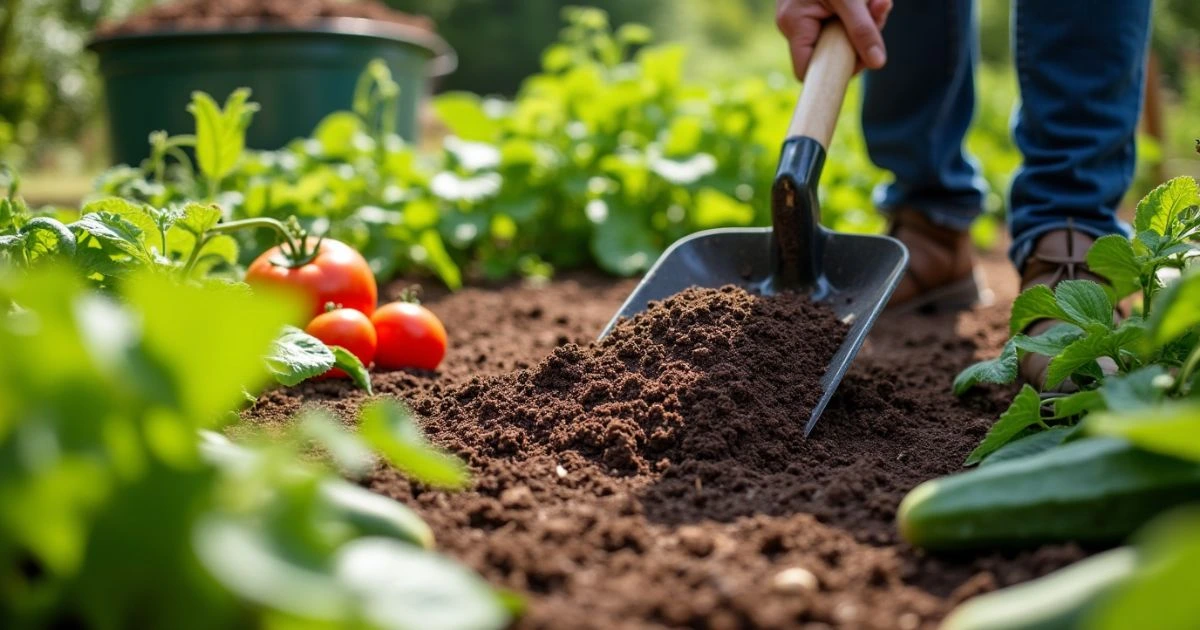
Compost is the backbone of organic garden fertilizer options. It provides nutrients while improving soil texture.
- Example: Create compost with vegetable scraps, coffee grounds, and lawn clippings. Spread a 2-inch layer on garden beds before planting.
- Best For: All garden plants, especially heavy feeders like tomatoes and cucumbers.
2. Manure
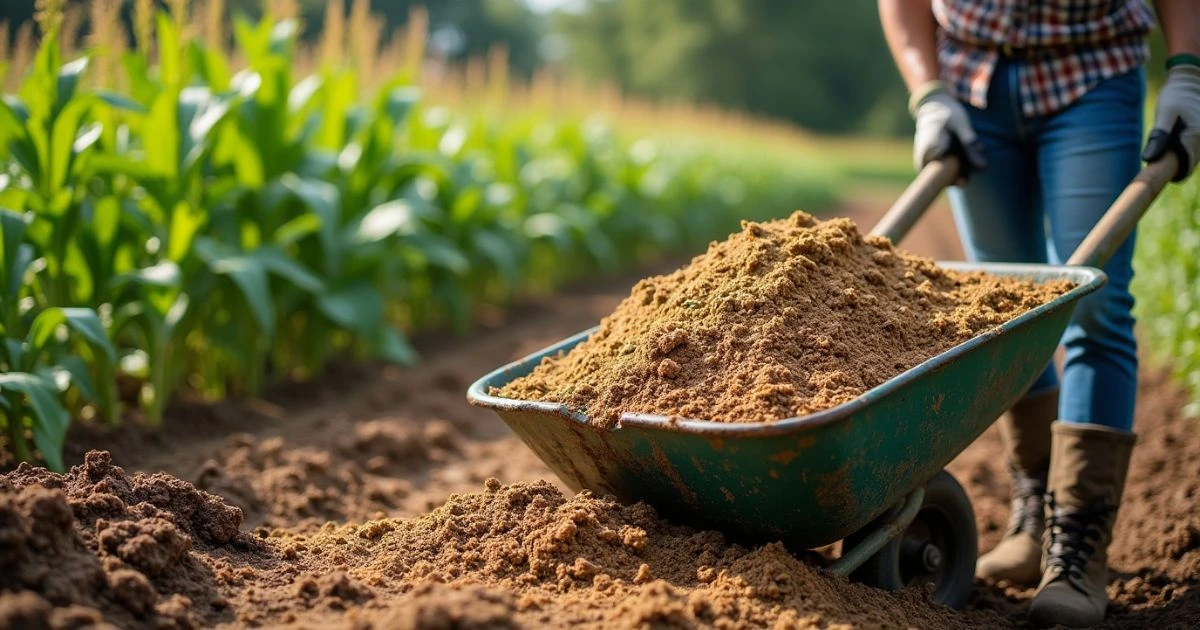
Manure from cows, horses, or chickens delivers nitrogen-rich energy for plants. Properly aged manure is key.
- Example: Use aged chicken manure for leafy greens or apply cow manure to corn in fall for spring planting.
- Best For: Nitrogen-hungry vegetables like corn, beans, and squash.
3. Worm Castings
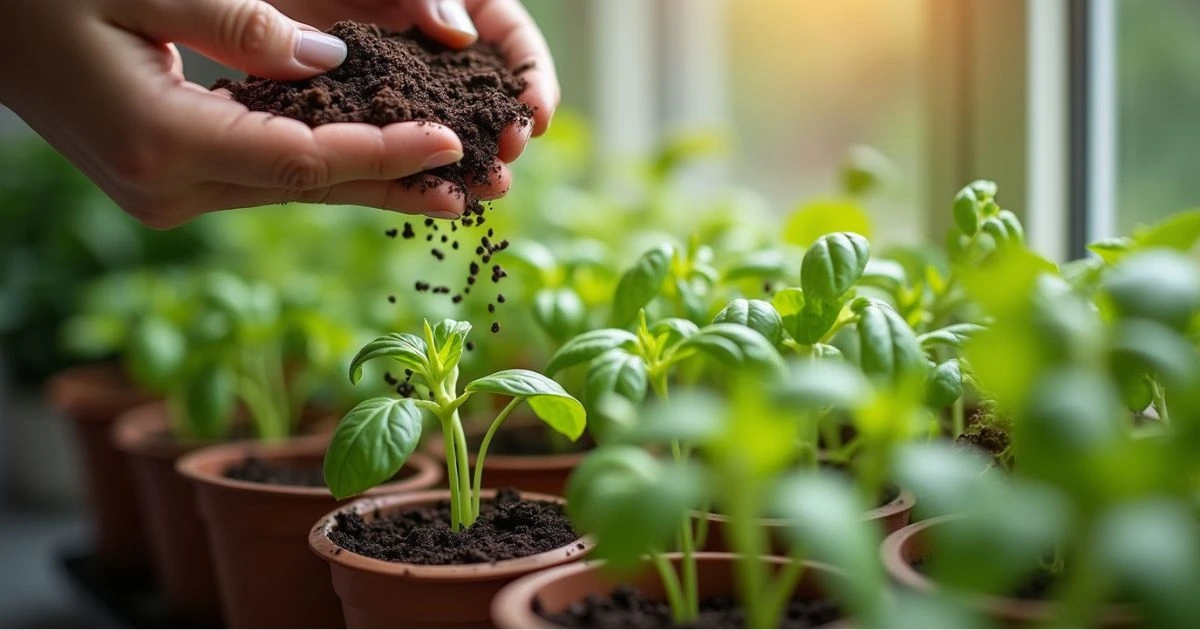
Worm castings are packed with nutrients and beneficial microbes. They are a top choice for natural fertilizer for vegetables.
- Example: mix worm castings into seedling pots or sprinkle them around delicate herbs to give them a nutrient boost.
- Best For: Indoor plants, herbs, and delicate vegetables like lettuce.
4. Bone Meal
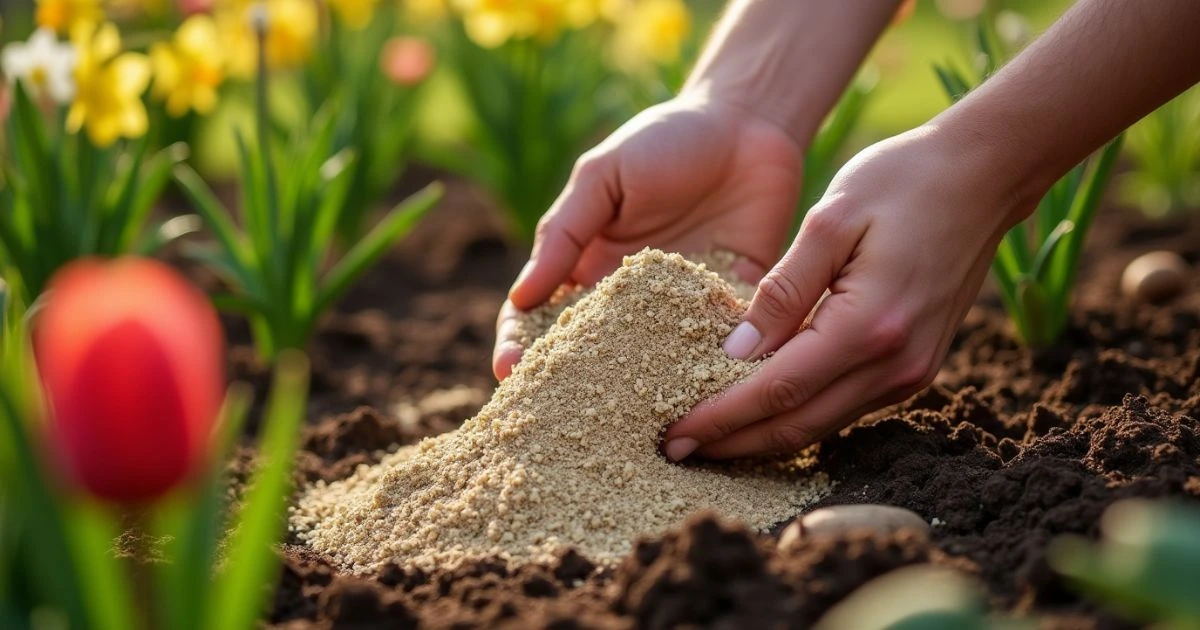
This phosphorus-rich fertilizer is essential for root growth and flowering.
- Example: Mix bone meal into the soil when planting bulbs like tulips for spectacular spring blooms.
- Best For: Root vegetables and flowering plants.
5. Fish Emulsion
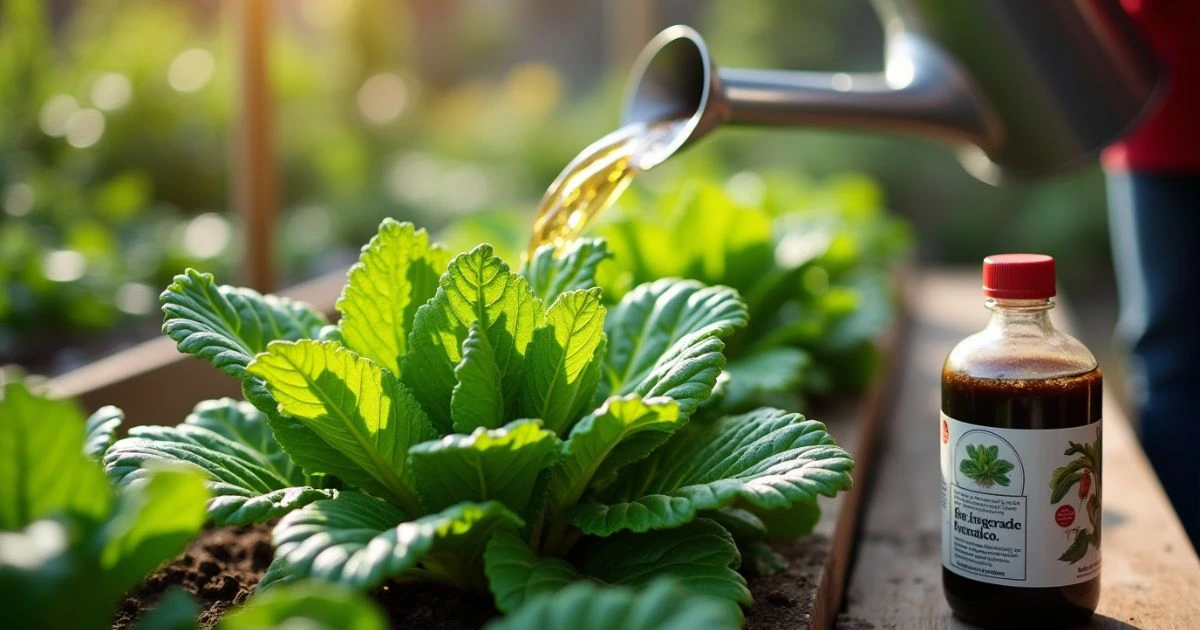
Fish emulsion is a fast-acting liquid fertilizer, perfect for plants that require immediate nutrients.
- Example: Dilute fish emulsion in water and use it to feed kale or spinach every two weeks.
- Best For: Leafy vegetables and nitrogen-deficient plants.
6. Rock Phosphate
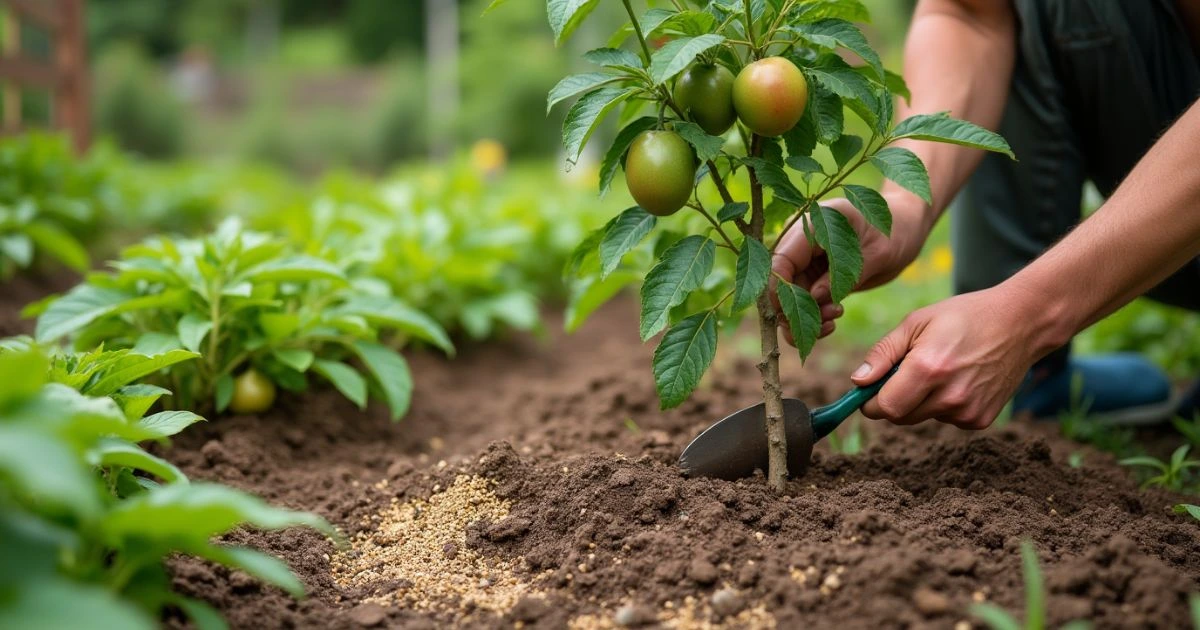
Rock phosphate is a slow-release phosphorus source that enhances root health.
- Example: Add rock phosphate to the soil when planting fruit trees to promote years of strong growth.
- Best For: Perennials, fruit trees, and tomatoes.
7. Alfalfa Meal
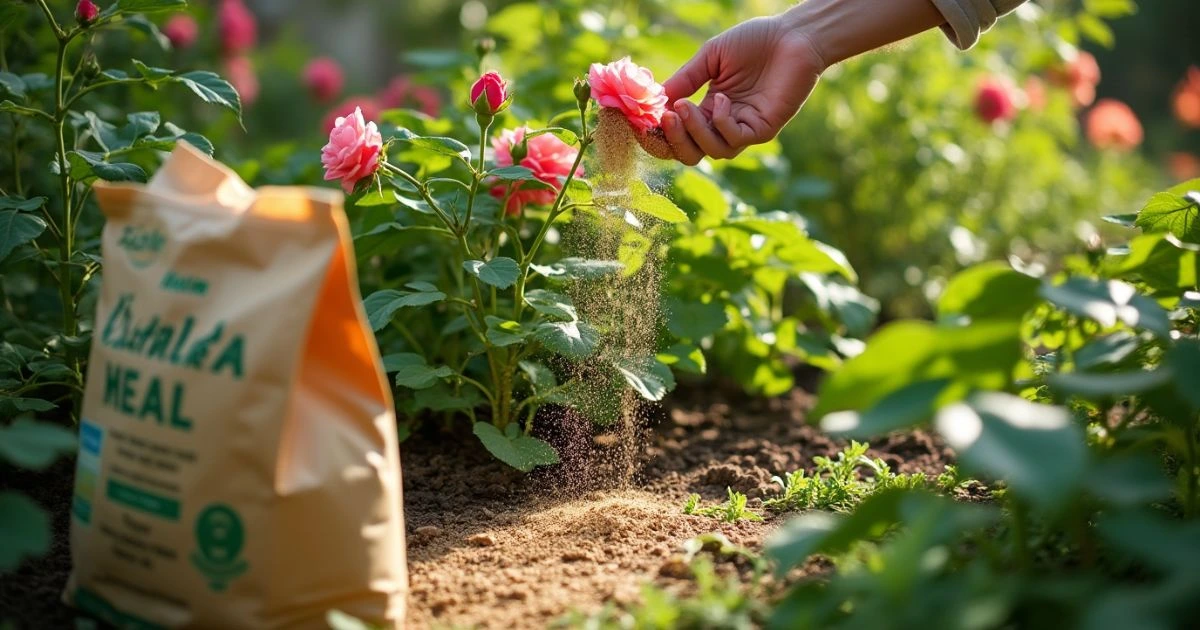
This fertilizer is packed with nitrogen and natural growth stimulants.
- Example: Sprinkle alfalfa meal around rose bushes in spring to encourage lush blooms.
- Best For: Flowering plants and fast-growing vegetables like zucchini.
Using Organic Fertilizers in Container Gardening
Container gardening is a fantastic option for those with limited space, offering flexibility and control over your plants’ environment. However, growing in containers comes with unique challenges, such as faster nutrient depletion and leaching. This makes using the right organic garden fertilizer essential for success.
Challenges of Container Gardening
- Limited Soil Volume: Plants in containers have restricted access to nutrients compared to those in garden beds.
- Nutrient Leaching: Frequent watering can wash away essential nutrients.
- Root Bound Issues: occur when restricted root growth hinders the plant’s ability to absorb nutrients effectively.
Organic garden fertilizers can tackle these challenges while promoting healthier plants.
Best Organic Fertilizers for Containers
Here’s how different fertilizers can help container plants thrive:
- Compost: Add compost to your container mix to improve water retention and provide slow-release nutrients. A mix of kitchen scraps and yard waste can be turned into nutrient-rich compost for container plants. Apply a thin layer to the surface of the soil every few weeks.
- Worm Castings: Ideal for small spaces, worm castings are lightweight and provide a rich dose of nutrients and beneficial microbes. Mix them into the potting soil or top-dress your containers to boost plant vitality.
- Liquid Fertilizers: Quick-acting options like fish emulsion or compost tea are perfect for containers. Dilute and apply as a soil drench or foliar spray to give plants an immediate nutrient boost without overwhelming their root systems.
Tips for Success with Organic Fertilizers in Containers
- Choose the Right Potting Mix: Start with a high-quality organic potting mix that retains moisture but drains well. Avoid heavy garden soil in containers, as it can become compacted.
- Supplement with Slow-Release Fertilizers: Incorporate options like bone meal or rock phosphate into the potting mix at planting time for long-term nutrient supply.
- Top-Dress Regularly: Every month or two, sprinkle a small amount of compost, alfalfa meal, or worm castings on the soil surface to replenish nutrients.
- Water Wisely: Nutrient leaching is common in containers due to frequent watering. Use organic mulch like shredded bark or straw on top of the soil to retain moisture and reduce nutrient loss.
- Rotate Liquid Fertilizers: Alternate between fish emulsion and compost tea to ensure a balanced nutrient profile for your plants.
- Monitor Plant Health: Regularly inspect your plants for signs of nutrient deficiency, such as yellowing leaves or stunted growth. Adjust your fertilization routine as needed.
Examples of Container Plants and Their Fertilizer Needs
- Herbs (Basil, Parsley, Mint): Benefit from regular doses of compost tea or worm castings. These fertilizers encourage steady growth and vibrant flavors.
- Tomatoes and Peppers: Use a blend of compost and bone meal to support fruiting and prevent blossom-end rot. Supplement with fish emulsion during the flowering phase for additional nitrogen.
- Leafy Greens (Spinach, Lettuce): These fast growers thrive with weekly applications of diluted fish emulsion or compost tea.
Container gardening with organic garden fertilizers ensures your plants receive the nutrients they need while maintaining an eco-friendly approach. With the right care, you can enjoy bountiful harvests and beautiful blooms even in the smallest of spaces.
Seasonal Guide to Fertilizing Your Garden
Each season brings unique challenges and opportunities for gardeners, making it essential to tailor your fertilization strategies accordingly. Using the right organic garden fertilizer at the right time ensures your plants get the nutrients they need for optimal growth and productivity. Whether you’re looking for the best fertilizer for a vegetable garden or a reliable natural fertilizer for vegetables, this seasonal guide will help you plan effectively.
Spring: Prepare the Ground for Growth
Spring is the season of renewal, where gardens wake up from their winter dormancy. It’s the perfect time to enrich your soil with organic garden fertilizers that lay a strong foundation for the growing season.
- Compost: Apply a 2-3 inch layer of compost to your garden beds before planting. This organic material boosts soil fertility and structure, giving your plants a solid start.
- Bone Meal: Add bone meal to planting holes for root crops like carrots and flowering vegetables such as tomatoes and peppers. The phosphorus supports strong root growth.
- Alfalfa Meal: For an extra boost, use alfalfa meal in early spring. Its natural growth stimulant, triacontanol, helps jumpstart plant development.
💡 Tip: Conduct a soil test in early spring to identify any nutrient deficiencies. This will guide your choice of organic garden fertilizers.
Summer: Keep the Growth Momentum
Summer is the peak growing season, with plants demanding consistent feeding to sustain their rapid growth and productivity. Using the best organic fertilizer for veggies ensures your crops stay healthy and vigorous.
- Fish Emulsion: Apply diluted fish emulsion every two weeks to fast-growing leafy greens like spinach and lettuce. Its nitrogen content encourages lush foliage.
- Compost Tea: Use this liquid gold to provide a quick nutrient boost for flowering plants like zucchini and cucumbers. It improves their capacity to yield a bountiful harvest.
- Mulched Manure: Spread a thin layer of aged manure around the base of heavy feeders like corn and squash. This prevents nutrient depletion and keeps the soil moist.
💡 Tip: Water plants deeply and regularly during hot summer months to minimize nutrient leaching in sandy soils.
Fall: Replenish and Revitalize
Fall is a critical time for replenishing your soil and preparing it for the next growing season. It’s an opportunity to use natural fertilizers for vegetables that release nutrients slowly over the winter months.
- Rock Phosphate: Incorporate rock phosphate into the soil in the fall to support root development in perennial plants and fruit trees.
- Manure: Spread aged manure over garden beds after harvesting. This enriches the soil with nitrogen and organic matter as it breaks down over winter.
- Greensand: Add greensand to improve soil texture and potassium levels, which are essential for root and flower health.
💡 Tip: Cover garden beds with an organic mulch like straw or leaves after applying fertilizers. This helps protect the soil from erosion and nutrient depletion during winter rains.
Winter: Prepare for the Coming Season
Though plants grow slower in winter, your soil continues to benefit from the organic materials added during the colder months. Winter fertilization is about laying the groundwork for a thriving spring garden.
- Compost Layer: Apply a thin layer of compost over dormant beds to safeguard the soil and maintain its activity.
- Worm Castings: Add worm castings to indoor container plants or overwintered crops in greenhouses to maintain their health.
- Liquid Fertilizers: For winter greens like kale and chard, apply diluted fish emulsion sparingly to sustain growth.
💡 Tip: Winter is an excellent time to plan and prepare DIY fertilizers, such as compost or compost tea, so you’re ready for the busy spring season.
Adapting Fertilization to Your Climate
Your local climate may require adjustments to this seasonal guide. For instance:
- In warmer regions, where gardening can continue year-round, rotate between compost and liquid fertilizers like fish emulsion to keep plants productive.
- In cooler climates, focus on adding slow-release organic materials like bone meal and rock phosphate in the fall to ensure your soil is ready for spring.
By following this seasonal guide and incorporating the best fertilizer for vegetable garden needs into your routine, you can maintain healthy, productive plants year-round. Adjust your approach based on your garden’s unique requirements and watch your garden flourish with vibrant greenery and bountiful harvests!
Common Pitfalls to Avoid When Using Organic Fertilizers
- Over-Fertilizing: Too much fertilizer can damage plants.
- Wrong Fertilizer: Match fertilizers to plant needs.
- Ignoring Soil Health: Regular soil testing ensures balanced nutrition.
Conclusion
Using organic garden fertilizer ensures healthier plants and sustainable gardening. Whether you prefer compost, manure, or specialized options like bone meal or fish emulsion, there’s an organic garden fertilizer to meet every need. Explore, experiment, and tailor your approach to create a garden that thrives year-round.


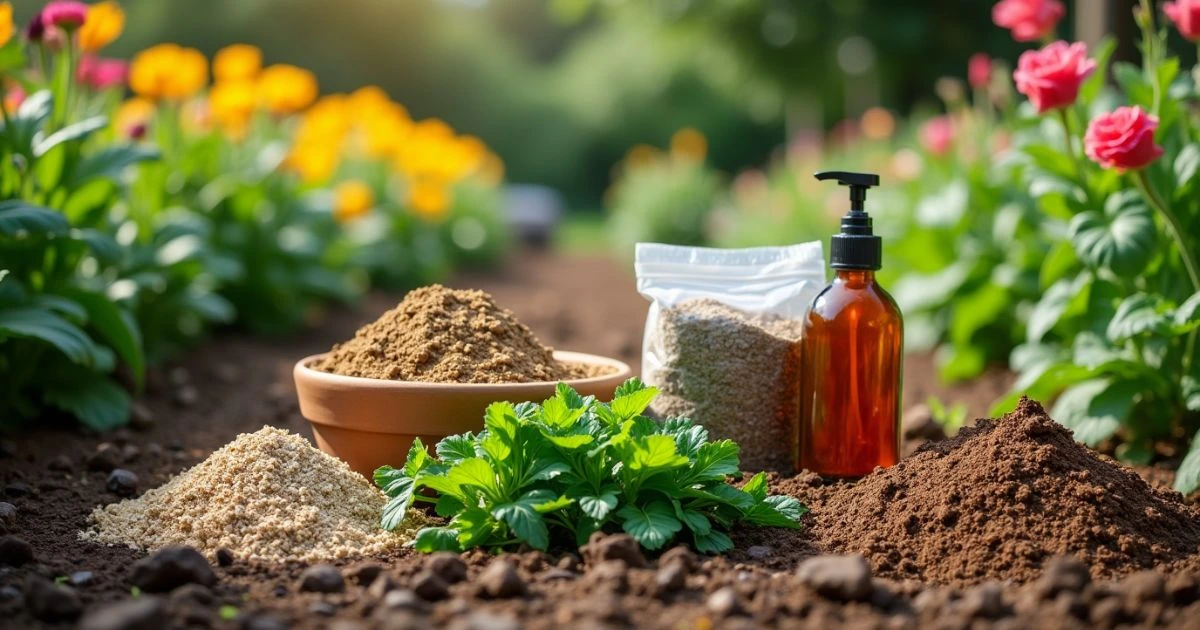
2 thoughts on “Organic Garden Fertilizer: 7 Amazing Options for Success”